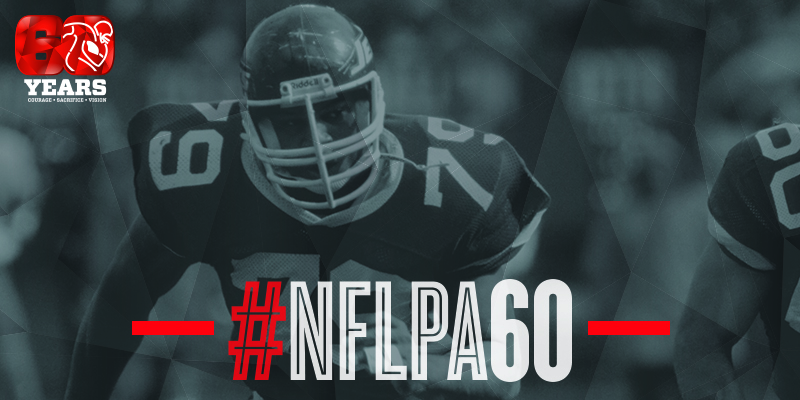60 Heroes: Tackling the Issues Head On

When the NFL players went on strike in 1982, Marvin Powell was one of its strongest critics, going as far as to say the union was being “anti-competitive” by proposing a wage-scale systemfor the players. By the end of his career, however, the Pro Bowl offensive lineman for the New York Jets and Tampa Bay Buccaneers went from being one of the NFLPA’s biggest critics to
one of its greatest supporters.
At a time when being a player rep was almost seen as a scarlet letter, Powell accepted that role with the New York Jets in 1982. When free agency became the union's primary goal in the mid-1980s, he became NFLPA President and led the players through the 1987 strike, attending negotiation sessions on a frequent basis.
When the work stoppage ended, Powell, who was also obtaining his degree at New York LawSchool, became lead plaintiff in the antitrust suit filed in the NFLPA against the league, challenging the owners' continuation of the first refusal/compensation system, which essentially prohibited free-agent movement in the league.
Powell endured this fight despite being waived, recalled and eventually traded by the Jets in 1986 – a move commonly made by owners against NFLPA officers. Though the Powell case was ultimately lost in the appeals court in 1989, it provided a legal guide for the NFLPA to renounce its union status. The move to decertify, along with favorable rulings in the Freeman McNeil and Reggie White cases, led to the landmark establishment of NFL free agency in 1993– thanks in large part to Powell’s sacrificial work and commitment.